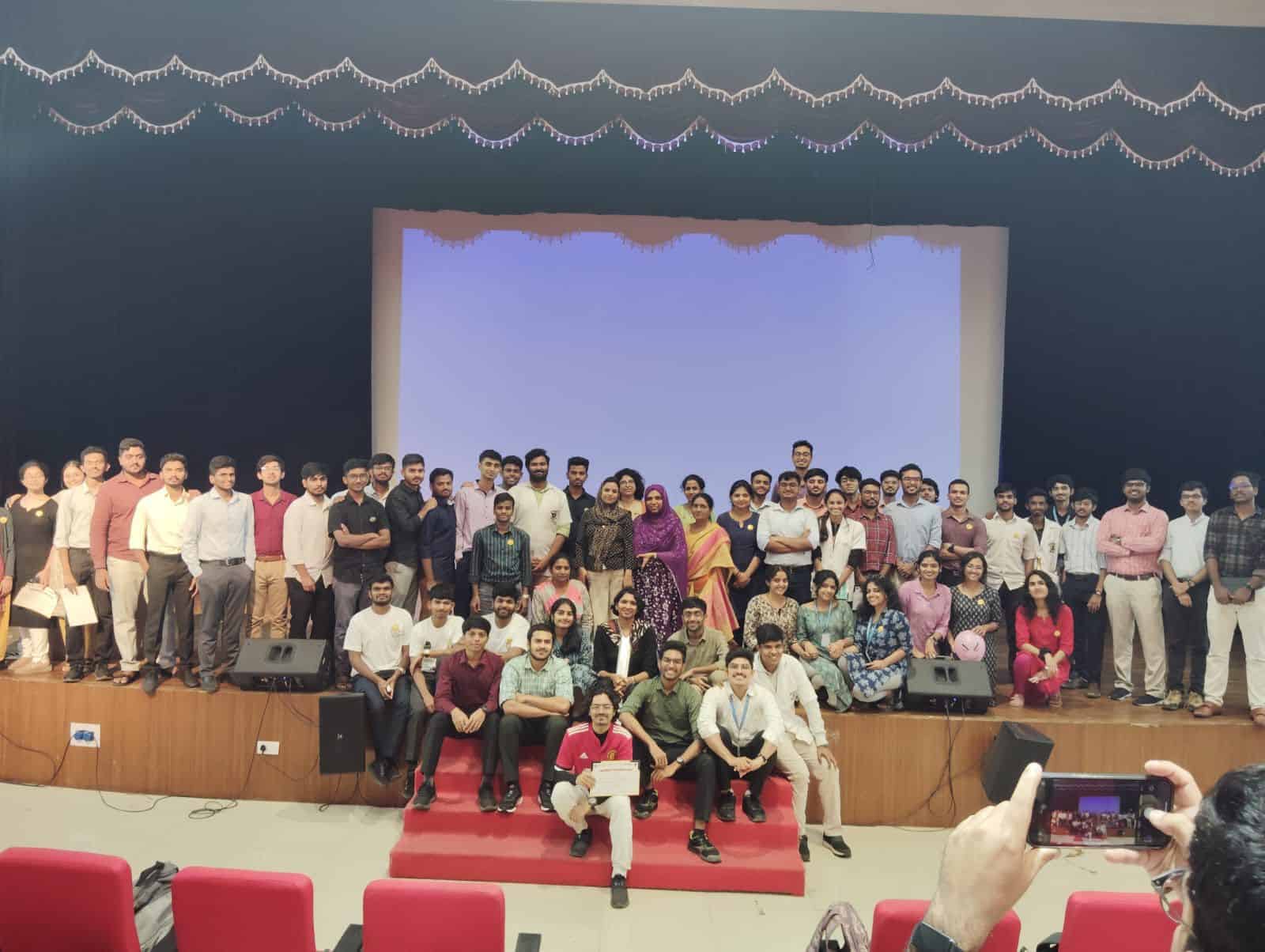On September 30, 2024, Superheroes against Superbugs (SaS) successfully launched its ‘AMR Frontline Workshop Series’ in Karnataka, by organising an all-day event for final-year medical students at the Bangalore Medical College and Research Institute (BMCRI). Organized in collaboration with the Department of Medical Education, the National Centre for Biological Sciences (NCBS), Alliance for Pathogen Surveillance Innovation (APSI India) and the Tata Institute for Genetics and Society (TIGS), this workshop is first among a series of AMR awareness sessions planned for medical students in Karnataka. Over the next few months, SaS will be engaging with final year medical undergraduates from various Government and Private Medical Colleges in and around Bengaluru.
The AMR Frontline workshops by SaS are conceptualized to equip the next generation of healthcare professionals with the essential knowledge and skills to confront the rising public health threat of AMR. These workshops aim to raise awareness, ignite curiosity, and provide practical tools for managing AMR in clinical environments and are specifically designed for medical students. Following the successful workshops in Hyderabad, New Delhi, and Bengaluru, this series has now arrived in Karnataka, with a special focus on fourth-year medical students who will soon be treating patients in the field.
Workshop Inauguration
The workshop was presided over by Shri Mohammad Mohsin IAS, Principal Secretary of the Department of Medical Education, Government of Karnataka. He emphasized the importance of initiatives like this and the critical role of training and early awareness among medical students in addressing the public health threat of AMR. This partnership with the Department of Medical Education, facilitated by NCBS, TIGS, APSI, and SaS is vital for expanding these workshops to a greater number of Government medical colleges in Karnataka.
Workshop overview
Over 150 enthusiastic final-year MBBS students participated in the dynamic AMR Frontline Workshop, which featured a variety of interactive activities, expert talks, and engaging games. Key topics included the science behind AMR, the clinical challenges it presents, and effective strategies for mitigating its impact. The event concluded by encouraging students to take ownership and contribute to the fight against AMR and empowering them to make a meaningful difference in healthcare.
Dr. Ponnari Gottipati, SaS Co-founder and Co-lead, kicked off the workshop by introducing SaS and the partner organizations involved in organizing the event, highlighting the APSI-India’s work in tackling AMR through surveillance. She shared the SaS’ motivation for engaging with medical students, and outlined what participants could expect during the sessions. To break the ice and energize the students for the upcoming activities, the SaS team organized a lively game of “TABOO: AMR Edition”, creating a fun and interactive start to the workshop while fostering connections between the facilitators and participants.
The workshop featured a distinguished panel of experts who shared their valuable insights into the complexities of AMR. The first session of the workshop was by Prof. L. S. Shashidhara, (Director of the National Centre for Biological Sciences-NCBS), who delivered the keynote address. He guided the audience through the science behind AMR, explaining the evolution of resistant microbes. He emphasized that understanding these processes is crucial for scientists to develop effective solutions to address this urgent global health issue. Prof. Shashidhara articulated the concerns surrounding the emergence of AMR as a major threat and stressed the necessity for immediate action and effective solutions.
Following this, Dr. Sangeetha S (Professor and former HOD of Microbiology at Rajarajeshwari Medical College and Hospital) provided practical insights into essential measures and policies for managing AMR in healthcare settings. Focused on AMR stewardship, she discussed the importance of susceptibility testing, antibiotic policy, AWARE classification and right prescription practices in effectively combating AMR in a clinical environment.
The second segment of the workshop with Dr. Anitha Kommalur (Assistant Professor of Pediatrics at BMCRI) highlighted the dilemmas faced by clinicians while treating patients with drug-resistant infections. Through case studies from her clinical experience, she highlighted the complexities of AMR in real-world settings and emphasized the importance of antibiotic policy, clinical correlation, and bundled care in addressing this pressing issue.
Dr. Vasan Sambandamurthy (Senior Vice President at Bugworks), through his talk on “AMRpreneurs: Developing Novel therapeutics to target AMR”, offered the audience a unique perspective on AMR through his extensive experience in developing novel antibiotics. He discussed the intricacies involved in the clinical development process, providing students with insights into the challenges and opportunities in the fight against resistant infections.
Several engaging activities were incorporated throughout the day, to ensure the workshop was both enjoyable and captivating to engage its audience on AMR. The Antibiotic Word Hunt Challenge held during tea and lunch breaks, sparked peer discussions in a fun and informal setting. The workshop concluded with a quiz competition, starting with a fast-paced online round, followed by a Jeopardy-style group quiz for the top scorers. This format is an important learning tool that not only helped students review their day’s learnings but also helped evaluate the workshop’s impact.
The inaugural AMR Frontline Workshop was a success, driven by the enthusiastic participation of students and insightful contributions from our expert panel. We are excited to continue this important initiative and deepen our engagement with the next generation of healthcare professionals.
